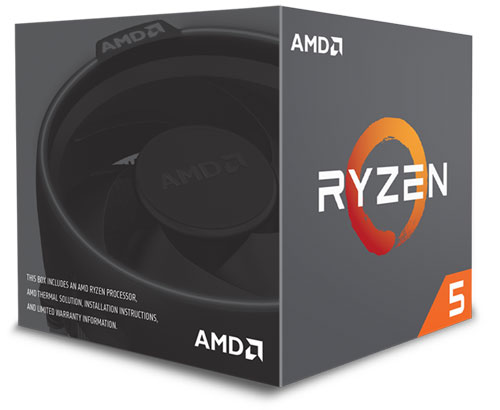Watching the new president, I’m struck by the fact that he is making almost the identical mistake President Obama made during his first two years. Trump has picked a major entitlement to hang his hat on — the same major entitlement, healthcare — and shortly will discover what most CIOs know: You don’t mess with anything that touches everybody.
The likely outcome will be that like Obama, Trump will lose the house in the next election, and that the Republicans will be forced out of power over the next four to eight years, all for an avoidable, repeated mistake.
Interestingly, tech has products — Watson, for example — that not only could prevent this but also could ensure the success of any administration that chose to use them. By success, I mean success in war, success in peace, success in approval ratings, and success in economic achievement.
However, Watson can’t help President Trump for much the same reason it can’t help CEOs in general. I’ll share my thoughts on why, and why we should fix that, and close with my product of the week: the Ryzen 5, a new processor from AMD that hits the sweet spot for those of us who like to build gaming rigs on a budget.
Watson Isn’t Going Where It Could Do the Most Good
One of the very interesting and unique positions that IBM CEO Ginni Rometty has taken is the idea that Watson, IBM’s Enterprise AI platform, should be used to augment rather than replace employees.
What Watson does is provide a wealth of experience, potentially generational, to any decision maker it has been trained to enhance, ensuring that decisions are based on experience rather than on gut feeling alone.
This is one of the reasons H&R Block is using Watson for tax preparation, and Salesforce is using it to enhance its sales and customer care tools. Once trained, Watson effectively can turn every employee it works with into an expert. What I think is weird is that there doesn’t seem to be a desire to apply Watson to the top of a company.
The people Watson is enhancing aren’t VPs — they are line employees. Yet the higher a person advances, the less education and core skills apply — until you get to the CEO position, which has no real parallel with any other level of the firm.
CEOs often start with a lot of perceptions — many of which are wrong — about what a CEO does. They often have trouble divorcing themselves from their last job if they were promoted from within, or transitioning from it if they were hired from outside, and many fail as a result.
So, and this seems really foolish to me, Watson — which is basically a genius in a box — is applied to folks working at jobs they have trained for and have some competence in, and it isn’t used to help folks who get jobs they didn’t train for and often don’t have competence in. Oh, and that seconds set of jobs is leveraged in such a way that a bad decision literally could kill the company.
Take that up a few levels to the president of the U.S., who often enters the office nearly completely untrained for it and has the ability to bankrupt a nation or blow up the world, and you have to ask yourself, where’s Watson?
Watson is prioritized for those it will enhance a little, whose decisions have limited impact, and kept away from those it would enhance a lot, whose decisions literally could kill us. WTF, right?
Watson for President
There are three reasons Watson isn’t considered an executive tool. First, Watson would have to be trained uniquely for each top executive job, making it very expensive — particularly initially. Yes, there would be synergy between companies, but that would tend to drop off the higher you went, making the solution really expensive for the top person.
Still, given that it could make the difference between a Netscape and an Apple in terms of financial performance, or a one-term failed president and a two-term successful president, I think it should be far easier than it seems to be to justify this cost.
Second, we just don’t think about tools for top executives. That may have to do with reason No. 3, which I’ll get to, but I think that due to the fact that the CEO represents a class of employees that is relatively small, this group just isn’t targeted with anything but ads for private jet services, investment services, or other wealth-related perks.
Sometimes the CIO gets a dashboard, or the CEO gets a business intelligence tool, but it is generally an afterthought — and it isn’t clear that a critical mass of these folks use what’s given them. It may have to do with an unwillingness to retrain, but an AI tool can learn how to work with a person — it doesn’t have to be the other way around — so it would be a far more viable tool for an executive if it were considered.
Third, and this is probably the biggest problem, top executives don’t like to look weak. They like to appear that they know everything, even though they — and we — know that they don’t. This is certainly true initially, but because of the breadth of things they have to know and keep track of, their jobs tend to scale outside of their personal breadth quickly.
So, to maintain the illusion that they actually know what they are doing on their own, they rarely take advantage of mentors, adequate aids, or tools like Watson to help them out. It does seem ironic that to cover up a problem they would reject a tool that could mitigate it.
Wrapping Up: Why Tech Can’t Help
This takes me full circle, in that I don’t think Donald Trump and most CEOs would want a tool that made them look like they needed it. Yes, it would make them far more successful. Yes, it would benefit their firm or country dramatically. Yes, it could make the difference between leaving as a success or as a failure. However, all of that pales against the unfortunate appearance of having to admit that the job is beyond them — even though it simply is.
This is as foolish as someone who can’t swim trying to impress a date by not wearing a life jacket on a boat. People make that kind of bad decision every day, and top executives are human. It makes me wonder if, at the top of a company or country, we should be tossing out the Watson augment strategy and just have it run the whole thing.
Unless something changes, I bet we eventually get there.
I’ve been running the eight-core AMD Ryzen 7 for some time, and it is kind of fun to be excited about a desktop processor again. I really hate working on a laptop, and particularly a smartphone or tablet, because I love the 42-inch monitor I got from Dell on my desktop machine. It just makes writing while referencing so much easier, and I can work or game at a nearly epic scale.
However, top-end processors are expensive, and I’ve often chosen to use an Intel i5 over an i7 when I build a rig, largely because I get more bang for the buck from a fast SSD drive and graphics card, and more RAM.
By the way, as a side note, I recently learned that Microsoft gets a lot of complaints about Windows being slow, because folks buy high-end processors and then couple them with large hard drives that simply can’t keep up, so their expensive system bottlenecks on the drive.
The Ryzen 5 is a competitor to the i5. You can over-clock it, and for my money, the best configuration is second from the top of the 5 line — the 1600.

It bundles with a nice lighted fan that looks good in a case, it costs around US$200, and it has six cores, which gives you decent headroom when you are multitasking. I think the 1600 is likely the sweet spot for this line, and it leaves you with cash for a better graphics card and SSD drive to flesh out a nice well-balanced rig.
It should be no surprise that third-party comparisons show the Ryzen 5 is one of the best values in the market right now.
Making smart decisions is at the heart of this column, and since it would seem to be the smartest processor for a balanced rig, the AMD Ryzen 5 1600 is my product of the week.
























































